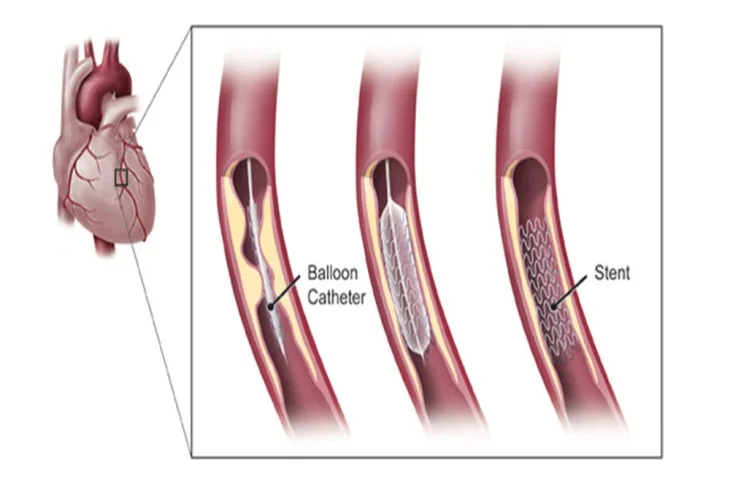Coronary Angioplasty (PCI)
Coronary Angioplasty, also known as Percutaneous Coronary Intervention (PCI), is a minimally invasive procedure used to open narrowed or blocked coronary arteries and restore blood flow to the heart muscle. It is one of the most effective treatments for coronary artery disease.
🔹 How it is done:
A thin catheter with a balloon at its tip is guided through the wrist or groin to the blocked artery.
The balloon is then inflated at the site of the blockage, pressing the fatty deposits (plaque) against the artery wall.
In most cases, a stent (tiny wire mesh tube) is placed to keep the artery open and prevent re-narrowing.
🔹 When it is recommended:
Persistent chest pain (angina) not controlled by medicines
Acute heart attack (STEMI/NSTEMI) to quickly restore blood supply
Severe blockages found during coronary angiography
To improve exercise tolerance and quality of life
🔹 Benefits:
Relieves chest pain and shortness of breath
Improves heart function and daily activity level
Minimally invasive, with faster recovery compared to surgery
Reduces risk of future heart attacks in selected patients
👉 Coronary Angioplasty (PCI) is a life-saving procedure that helps patients return to a healthier, more active lifestyle.

